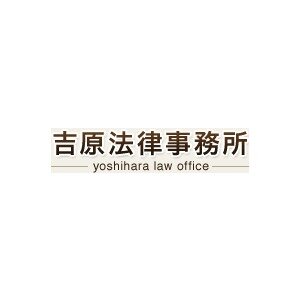Best Military Law Lawyers in Japan
Share your needs with us, get contacted by law firms.
Free. Takes 2 min.
Or refine your search by selecting a city:
List of the best lawyers in Japan
About Military Law in Japan
Military Law in Japan is unique due to its post-World War II pacifist constitution, which heavily influences the structure and function of its military, known as the Japan Self-Defense Forces (JSDF). The fundamental legal framework governing military affairs in Japan is the Self-Defense Forces Law, alongside the Japanese Constitution, especially Article 9, which renounces war and prohibits Japan from maintaining traditional military forces. Instead, the JSDF operates under a defensive mandate. Legal issues related to military law often involve the interpretation of Japan’s self-defense capabilities and the legal rights and responsibilities of JSDF personnel.
Why You May Need a Lawyer
There are various circumstances where individuals might require legal assistance concerning military law in Japan:
1. Understanding legal regulations if you are a JSDF member, including rules of conduct, rights, and obligations.
2. Navigating legal concerns related to conscription laws should they change, or other defensive mandates involving civilians.
3. Legal matters related to military justice, non-judicial punishments, or disciplinary actions within the JSDF.
4. Administrative issues or disputes concerning benefits, pensions, or compensation for JSDF personnel and their families.
5. Addressing international military law issues, including bilateral agreements between Japan and other countries.
Local Laws Overview
Key aspects of local laws relevant to military law in Japan include:
- The Constitution of Japan, Article 9: Declares Japan’s commitment to pacifism and restricts military actions, allowing only self-defense forces for defensive purposes.
- Self-Defense Forces Law: Governs the formation, control, and duties of the JSDF, including areas such as ranks, responsibilities, and disciplinary measures.
- Basic Act on Disaster Control Measures: Permits the use of the JSDF for disaster relief, illustrating their role beyond traditional military operations.
- U.S.-Japan Status of Forces Agreement (SOFA): Outlines legal parameters for U.S. military bases and personnel in Japan.
Frequently Asked Questions
What is the role of the Japan Self-Defense Forces (JSDF)?
The JSDF is tasked with defending Japan from external threats and assisting with disaster relief within the country. Their operations are restricted to self-defense by the Japanese Constitution.
Can the JSDF participate in international military operations?
The JSDF may participate in international peacekeeping operations under certain conditions and barring any action considered offensive military operations.
What are the legal benefits for JSDF personnel?
JSDF personnel are entitled to certain benefits including pensions, healthcare, and support for their families, as outlined in various Japanese laws and defense policies.
Does Japan have military courts like other countries?
Japan does not have a separate military court system. Military-related legal issues are handled within the civilian legal framework.
What happens if a JSDF member breaks the law?
Depending on the severity, disciplinary actions may include reprimands, rank reduction, penalties, or dismissal. More severe cases could lead to civilian court trials.
Are there any compulsory military service requirements in Japan?
Currently, Japan does not have conscription. Joining the JSDF is voluntary.
How is the JSDF regulated in times of national emergency?
The Diet, Japan’s national legislature, holds the power to regulate and authorize the use of the JSDF in emergency situations, aligning with constitutional mandates.
What role do women play in the JSDF?
Women serve in various capacities within the JSDF, with increasing numbers in positions traditionally held by men as gender equality progresses.
Is there coordination between the JSDF and U.S. military forces in Japan?
Yes, under the U.S.-Japan Alliance, there is regular coordination for defense and operational strategies, facilitated by bilateral agreements such as SOFA.
How can disputes regarding military law be resolved?
Disputes are typically settled within civilian courts or through administrative procedures provided by the Ministry of Defense, depending on the nature of the dispute.
Additional Resources
For individuals seeking more information or assistance, the following resources may be helpful:
- Ministry of Defense, Japan: Offers information on defense policies and JSDF regulations.
- Japan Legal Support Center (Houterasu): Provides general legal advice and support.
- U.S. Embassy Tokyo: Can provide information related to the SOFA and U.S. military personnel matters in Japan.
Next Steps
If you need legal assistance regarding military law in Japan, consider the following steps:
1. Identify the specific legal issue or question that needs resolution.
2. Consult with a lawyer specializing in military law or international law with expertise in Japanese legislation.
3. Contact governmental bodies such as the Ministry of Defense or local legal aid services for guidance.
4. Prepare all relevant documentation and information related to your case before consulting a legal professional.
5. Consider reaching out to your local JSDF base legal office if you are a member or for inquiries related to active duties.
Lawzana helps you find the best lawyers and law firms in Japan through a curated and pre-screened list of qualified legal professionals. Our platform offers rankings and detailed profiles of attorneys and law firms, allowing you to compare based on practice areas, including Military Law, experience, and client feedback.
Each profile includes a description of the firm's areas of practice, client reviews, team members and partners, year of establishment, spoken languages, office locations, contact information, social media presence, and any published articles or resources. Most firms on our platform speak English and are experienced in both local and international legal matters.
Get a quote from top-rated law firms in Japan — quickly, securely, and without unnecessary hassle.
Disclaimer:
The information provided on this page is for general informational purposes only and does not constitute legal advice. While we strive to ensure the accuracy and relevance of the content, legal information may change over time, and interpretations of the law can vary. You should always consult with a qualified legal professional for advice specific to your situation.
We disclaim all liability for actions taken or not taken based on the content of this page. If you believe any information is incorrect or outdated, please contact us, and we will review and update it where appropriate.
Browse military law law firms by city in Japan
Refine your search by selecting a city.












